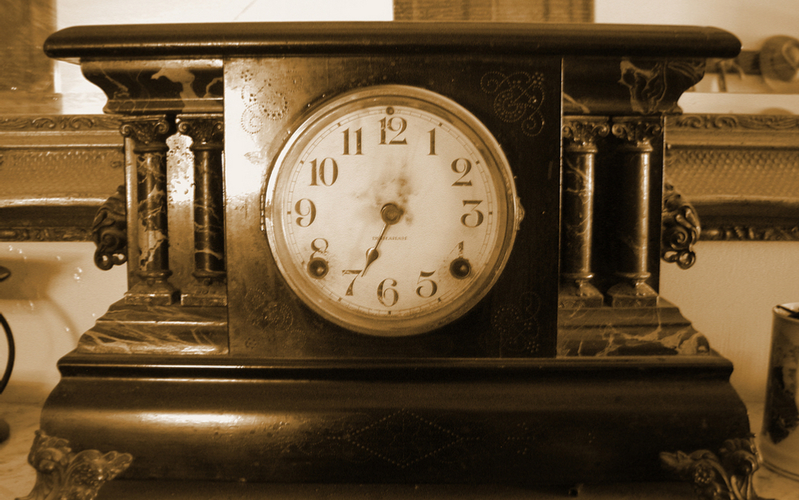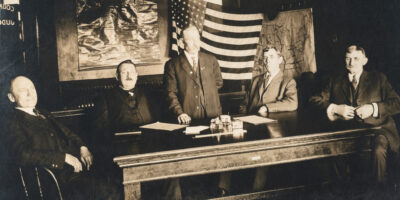Imagine a Clock that Doesn’t Surveil You
Warning: this article continues with my clock obsession.
Our phones today are also clocks, plus dictionaries, health trackers, music devices, cameras, social tools, payment methods – and, apparently, the method by which we choose to be surveilled and politically manipulated.
It’s all rather remarkable, but hardly the first time in history when device mania swept the population. It’s a luxury of being relatively rich, for every household or every person to acquire the things once limited to the elites.
In the eighteenth century, there were clocks in homes of the very rich, grandfather clocks that boomed the time all over the house to signal tea time and dinner and so on. Ah, to be a member of the leisure class! The clocks were extremely fancy. I was looking at originals just now at a high-end clock shop and they run about $17,000. It’s hard to know where most people would even put them today.
What changed in the second half of the 19th century – when Karl Marx and the rest of the bitter crew was scribbling about how the masses were being oppressed by capitalism – is that clocks started getting smaller, cheaper, and more accurate. By the beginning of the 20th century, America distinguished itself for its industrial capacity to produce clocks that were within the budget of every person. At its height, the Connecticut clock industry alone employed 35,000 people.
The American clocks were gloriously practical, made of wood and springs, in contrast to the older European ones made of stone and operated with weights. It was classic American ingenuity at work, serving the common person.
One thing I was missing in this story of history was a practical reason for why every home had to have one. I get that gizmos are fun and telling time is awesome but why the urgency on the part of consumers to buy one to the point that a massive new industry sprung up in the course of a few decades?
I threw the question to the mighty owner of Classic Clocks of Atlanta. Bernie the owner has been in business for 40 years. His bookshelf is a comprehensive library on the history of clocks. He seems to know everything. He can tell the period, country, and year of any clock with a glance. He lives and breathes the history. He loves every tick, every chime. And he loves to talk about clocks – in other words, a classic merchant who made a viable business out of a personal obsession.
So I asked why so many people in the late 19th century felt the need for a clock. His answer came quickly and it is so obvious once you hear it. People left the farms where the rooster and moon told the time. The seasons were what you lived and breathed because it was your job. But now their children were moving to the city to work in factories. Factories had strict hours. You had to get up at strange times, and you had to go to bed at a particular time. Their lives were regulated with more precision, so they needed a precision instrument to tell them what to do when.
This is when the clock became indispensable.
This revelation blew my mind because it makes just so much sense. This was the period in which the majority of the population shifted from one form of production to a completely different one. Their lives changed. Their homes changed. The way they thought about time began to change.
In my previous essay, I spoke about the late Middle Ages and the birth of progress. This, I said, drove the demand for clocks. But we can see here that there is far more to the story. The appearance of the small mantle clock in the late 19th century signaled a dramatic change in people’s aspirations. No more would the household clock be limited to the large form, resting in the large hallways in the entryways of the well-to-do leisure class. Now they belonged to everyone.
And sorry, Marx, but blessed capitalism is what made this possible. The story of our material progress is embedded in the tools that became available for the masses of people. The new system of prosperity spread wealth to everyone in ways that were inconceivable even a century ago. And that beautiful story today survives in these small shops in every city where you can see it all on display.
Yes, the workers could afford to purchase the products of their labors!
And listen to the stunning beauty of the tick tock and chime. It is like a living thing in your presence. It speaks with great profundity, the erudition achieved through wordless regularity. The new (but old) clocks now in the stone house at the American Institute for Economic Research have changed daily life there. Now many people can sit in the same room and not speak and still have a lovely voice filling up the room. It’s brought a new calm and elegance to the conversation. Then at the top of the hour, the chime sounds and everyone stops to listen.
Why not just play music instead? There is a problem: no one agrees on music choices anymore. You can’t play anything that is everyone’s first choice. The conventional choice is silence. The best option is the sound of a mechanical clock, its clean beat with a melody that is left to your imagination. The sound also causes philosophical reflection on the nature of time and the meaning of its passage.
And you know the notifications that are blowing up on your phone every few minutes, tricking you into believing there is some fake news you have to know or that some stranger somewhere is texting you something important, so that you can never really engage in conversation with others around you? It’s annoying beyond description, for everyone.
The notifications of these old clocks – the chime at the top and bottom of the house – mean something important but do not deceive or distract you. They are purely revelatory, not designed to manipulate you, sell you anything, to upset you.
I’m almost certain that our current notification obsessions with our smartphones are going to pass and we are going gradually to build up a certain etiquette surrounding them – same as people no longer talk loudly on their phones in public restaurants. But that will take some time. Meanwhile, the chime on these mechanical clocks is there to reveal to us the operation of a gentle, sonorous, and humane tracking of the passage of time.
You can shop for them locally or on eBay, and it’s remarkable how well they still work. And think of it: none of them are in the personal surveillance business.











